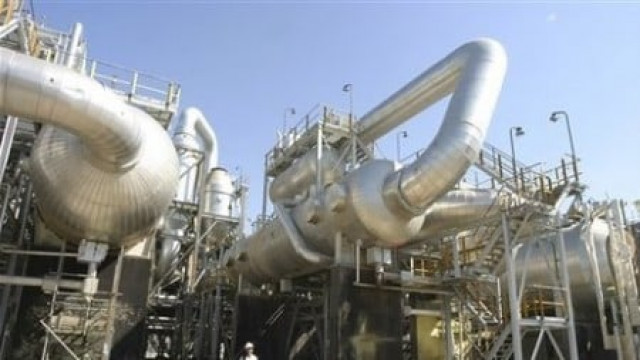Private sector demands equal tariff regime
Implementation sought for all companies for transport of imported gas

The private sector has called for implementing an equitable tariff regime for all companies including from the public sector for the transport of imported gas through pipelines of gas utilities.
The Oil and Gas Regulatory Authority (Ogra) on Thursday conducted a public hearing on the determination of transportation and distribution tariff for fiscal year 2020-21.
Interveners from the private sector raised serious questions over the transportation and distribution tariff in the hearing, which took up a petition filed by Sui Northern Gas Pipelines Limited (SNGPL).
Government companies were lifting 1,200 million cubic feet per day (mmcfd) of liquefied natural gas (LNG). The private sector said that the new transportation tariff regime should be applicable across the board, adding that the sector should not be burdened with a different tariff.
They also raised questions over the imposition of penalty, capacity payment, and application of tariff to all companies from the public sector.
They said that the gas utility wanted to charge capacity payment and tariff even if it denied pipeline capacity for any reason. Private sector interveners questioned why the sector should pay tariff to a gas utility which barred them from using pipeline capacity in any case.
Universal Gas Distribution Company (UGDC) Chief Executive Officer Ghiyas Abdullah Paracha lamented the blocking of imports by the private sector. He said UGDC had been struggling for four years to import gas but hurdles were created and therefore efforts could not yield desired results.
There were several foreign companies that were willing to work in Pakistan’s LNG sector. However, he said that the delay in imports discouraged them.
Paracha emphasised that the tariff on transportation of imported gas should be on an equitable basis for both private and public sector companies. He pointed out that the gas utility demanded the collection of insurance fee from a third party, adding that the utility should clarify benefits of the insurance policy.
He opposed the legal professional charges claimed by SNGPL from the third party and expressed fear that the gas utility would use the funds collected from the third party against them in legal disputes. He called for “removing this head from the tariff”.
He also drew attention to the retaining charges the utility claimed in the transportation tariff. Those charges had no example in the world as LNG terminal operators were already receiving retaining charges, he said. Paracha requested the regulator to issue final decision instead of a provisional decision on the transportation tariff. “It will be difficult for the third party to recover dues from consumers if there is a change in the decision later,” he said.
He requested Ogra to allow the equitable tariff regime for all, including the public sector, adding that the private sector would not be able to import LNG due to a high tariff regime.
Paracha called for facilitating the private sector in the import of cheaper LNG in a bid to facilitate the consumers. Shahid Sattar, who was representing the All Pakistan Textile Mills Association (Aptma), backed the call for giving a final decision on the transportation tariff rather than a provisional one.
He said that it would be difficult for the textile sector to recover dues on products after they were exported.
He revealed that the textile industry was also interested in importing LNG as it required 350mmcfd to meet the requirement. Therefore, he said, the private sector should be facilitated in cheaper imports.
Fatima Fertiliser representative Saqib Aziz raised a question about the tariff claimed by the gas utility. The market should be open for the private sector, he stressed.
Meanwhile, JS Global official Arsalan Ahmed said that the current transportation mechanism proposed by the gas utility would make it difficult for the private sector to import gas.
“If there is a difference in transportation tariff, then the government should have to give subsidy.” He said that the industry should be auditable. SNGPL Managing Director Amer Tufail said that it was a historic day that the third party model of open access was being introduced, adding that SNGPL had requested to allow the charging of tariff for the use of capacity pipeline.
SNGPL GM Kamran Akram pleaded the utility’s case, saying that they had requested tariff on gas transport from the pipeline network. He said that they had demanded the cost, which the company requested Ogra to allow in a review motion, adding that there should be a decision on the neutral market price.
He expressed fear that SNGPL consumers would shift to third parties due to a uniform transportation tariff. He pointed out that SNGPL was operating in a ring-fenced regime based on supply of local and imported gas.
Shifting of consumers to the third party, he said, would result in lower throughput, leading to a higher gas tariff for the consumers.
Published in The Express Tribune, December 11th, 2020.
Like Business on Facebook, follow @TribuneBiz on Twitter to stay informed and join in the conversation.



















COMMENTS
Comments are moderated and generally will be posted if they are on-topic and not abusive.
For more information, please see our Comments FAQ